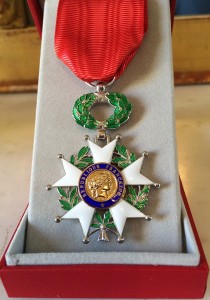WordPress database error: [You have an error in your SQL syntax; check the manual that corresponds to your MySQL server version for the right syntax to use near 'FROM wp_posts
WHERE 1=1 AND ((wp_posts.post_type = 'post' AND (wp_posts.' at line 2]SELECT SQL_CALC_FOUND_ROWS all
FROM wp_posts
WHERE 1=1 AND ((wp_posts.post_type = 'post' AND (wp_posts.post_status = 'publish')))
ORDER BY wp_posts.post_date DESC
LIMIT 0, 10

On Tuesday, 19 April 2016, Brendan Halligan was conferred with France’s highest civilian Honour: l’Ordre National de la Légion d’Honneur. To see the full gallery of photos of the event, click here.
Economist, politician and academic, Brendan Halligan has extensive experience as an activist in the European arena. He is the founder and current Chairman of the Institute of International and European Affairs (IIEA) a leading European think tank on European and International issues. He was appointed as a Member of the European Parliament (MEP) from 1983 until 1984, where he specialised in economic affairs and energy policy.
In a letter confirming the award, French Secretary of State for European Affairs Harlem Désir noted that the President of the French Republic had granted the distinction of Chevalier to honour “the remarkable merit” of Mr Halligan’s personal and professional achievements. It continued that the award is also in recognition of “50 years of exemplary contribution to the European debate in Ireland,” noting Mr Haligan’s invaluable, lifelong and multi-faceted devotion to the European ideal on political, intellectual and activist levels.
Brendan is one of a small group of Irish citizens to be distinguished with the honour. One of its earliest foreign recipients was Miles Byrne of Wexford (1780–1862) who fled Ireland following his role in the 1798 rebellion. In France he eventually became Brigadier General of Napoleon’s Irish Brigade and went on to fight in Spain and Greece before being awarded the Legion of Honour.
Following the French Revolution’s abolishment of the old feudal orders of chivalry, Napoleon Bonaparte instituted the Legion of Honour in 1802 as a means of recognising citizens by the merit of their achievements as opposed to inherited titles or nobility. Originally to be awarded to French citizens only, the award is also conferred on foreign nationals who have served France or France’s ideals. The distinctions can be both civilian and military, but organisations and even cities have been honoured, such as The French Red Cross or Algiers in 2004. Historically, an increasing number of non-military awards were conferred, like that granted to Alexander Graham Bell (1847-1922) or Franco-Irish composer Henri O’Kelly (1859-1938).
During the Great War over 20,000 non-nationals were honoured for their role in defense of France. World War II notably saw the conferring of the honour on two Irish citizens, Pat Gillen and Michael d’Alton, for their respective heroic roles in the Normandy landings. Interestingly, the order at that time was also granted to Marlene Dietrich (1901-1992) for her “work improving morale on the front lines”. This indicated a broadening in the various disciplines for which recipients have been honoured in the twentieth and twenty-first centuries.

The medal representing the honour of Chevalier de l’Order National de la Légion d’Honneur
The development reflects everything from technological advances, social and humanitarian developments, economic and political innovation and artistic achievement. For foreigners, only the Minister of Foreign Affairs has the capacity to propose dossiers of nominations and the process goes through several stages of approval before the final honourees are approved by the President of the Republic (in this case, François Hollande, Grand Master of the Legion since 2012). Just a few of those conferred in recent years include Myanmar’s much admired Aung San Suu Kyi, Surgeon General of the United States C. Everett Koop, Colombian journalist Ingrid Betancourt, film maker Orson Welles, Holocaust survivor and activist Elie Wiesel and British author J. K. Rowling.
In recent years Irish recipients include Bono, Mary Lawlor (founded of Front Line Defenders) and former Irish Government Minister Alan Jukes, himself a former Director-General of the IIEA. The conferral of the honour – symbolised by a medal – took place at a private ceremony in the French Embassy, where H.E. Jean-Pierre Thébault represented the President of the French Republic for the ceremony.